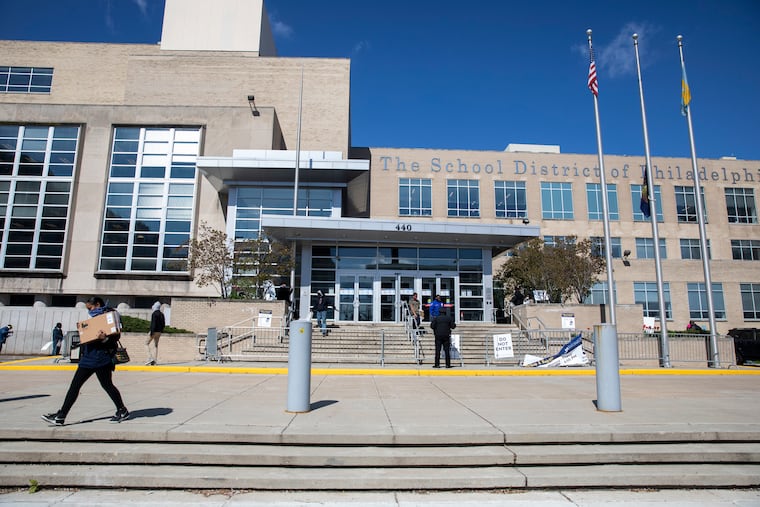Activists call for Comcast and other providers to guarantee faster, free internet for students
“I worry that if I don’t have access to stable internet soon, this situation will affect my future," said Genesis Mejia-Noyer, a junior at Kensington Health Sciences Academy.

Genesis Mejia-Noyer takes her studies seriously.
But, she said, her internet connection is too slow and unreliable. When she and her two siblings try to access Zoom or Google Classroom simultaneously, one or all is invariably kicked offline, or coping with frozen screens and unable to effectively ask teachers questions. Mejia-Noyer said she often has to wait minutes to get reconnected or must use her phone’s data plan to complete schoolwork.
“It happens multiple times during the school day, which is the main reason I feel distracted,” said Mejia-Noyer, a junior at Kensington Health Sciences Academy in Philadelphia. “I worry that if I don’t have access to stable internet soon, this situation will affect my future.”
Mejia-Noyer joined students, teachers, politicians, and activists from Philadelphia, Baltimore, Detroit, Denver, and Louisiana in a virtual news conference Wednesday to highlight the need for faster, free internet for all students, especially as the coronavirus keeps many school buildings — including Philadelphia’s — closed to full-time in-person learning.
They called on Comcast and other internet and cable providers to do more to bridge the digital divide, and for changes at the federal level to help.
Locally, Comcast has partnered with the city and the Philadelphia School District to offer free internet service for 35,000 low-income families, including those with school-age children, through its Internet Essentials program. A $17 million plan, funded by philanthropic partners, guarantees free service for two years.
» READ MORE: 18,000 Philly school families still lack reliable internet; board hears of coming financial pain
Company officials disputed the notion that Internet Essentials cannot support multiple users.
“No company has been more committed to bridging the digital divide," Comcast said in a statement. But "solving a problem as vast and complex as the digital divide requires collaboration — with the school district, elected officials, nonprofit community partners, and other private-sector companies — so everyone is part of the solution.”
City officials and Superintendent William R. Hite Jr. have said that 7,400 families have been signed up for the PHLConnectED program so far, either by being hardwired through Internet Essentials or receiving mobile hot spots. They estimate that 18,000 families still lack internet access, but say they aim to ramp up outreach and hope to see a surge in sign-ups soon.
City Councilmember Helen Gym and others who spoke at the news conference say that Comcast has a responsibility to reliably provide the kind of internet access that would allow Mejia-Noyer and students like her to learn without technology interruptions.
“People are united all across the country to demand that we want change and not charity,” Gym said.
Gym and others underscored that while most white and middle- and upper-class families have adequate wireless access to manage digital learning, many Black and Hispanic families lack it.
And in a city where many public school students have unstable housing and move frequently, “we cannot rely on home-based, hard-wired internet services for our young people to learn," Gym said. She called on Comcast, AT&T, and Verizon to fully open up their residential hot spots for all students to access the web “without the hassle of being hooked up to a specific home-based address.”
Comcast has said its residential hot spots are not equipped for public access, and city officials have pointed out that subscribers would have to grant permission to split bandwidth.